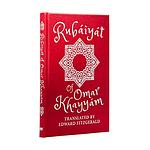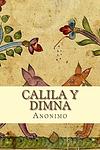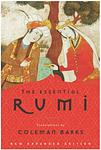The Greatest "Persia" Books of All Time
Click to learn how this list is calculated.
This list represents a comprehensive and trusted collection of the greatest books. Developed through a specialized algorithm, it brings together 286 'best of' book lists to form a definitive guide to the world's most acclaimed books. For those interested in how these books are chosen, additional details can be found on the rankings page.
Genres
The "Persia" category in books encompasses a rich tapestry of literature that delves into the historical, cultural, and artistic legacy of the ancient and medieval civilization that once spanned across the Iranian plateau and beyond. This genre includes historical accounts, poetry, philosophical treatises, and narratives that reflect the grandeur of the Persian Empire, its influence on world history, and its contributions to art, science, and literature. Readers can expect to explore the works of famed Persian poets like Hafez and Rumi, the epic tales of the "Shahnameh," scholarly examinations of Persian contributions to astronomy and mathematics, as well as contemporary analyses of Iran's political and social evolution. The "Persia" category offers a window into the soul of a civilization that has been a pivotal force in shaping the cultural heritage of not only the Middle East but also the wider world.
Countries
Date Range
Reading Statistics
Click the button below to see how many of these books you've read!
Download
If you're interested in downloading this list as a CSV file for use in a spreadsheet application, you can easily do so by clicking the button below. Please note that to ensure a manageable file size and faster download, the CSV will include details for only the first 500 books.
Download-
1. The Histories of Herodotus by Herodotus
"The Histories of Herodotus" is an ancient text that provides a comprehensive account of the Greco-Persian Wars. It is often considered the first work of history in Western literature. The author, often referred to as the 'Father of History', provides a narrative that not only discusses the conflicts between the Greeks and Persians, but also delves into the customs, geography, and history of each civilization. This detailed and pioneering work has greatly contributed to our understanding of the ancient world.
-
2. The Persians by Aeschylus
"The Persians" is an ancient Greek tragedy that tells the story of the Persian King Xerxes and his failed invasion of Greece. The narrative focuses on the aftermath of the Battle of Salamis, depicting the mourning of Xerxes' mother and the ghost of his father Darius, who prophesied the fall of the Persian Empire. It serves as a critique of the arrogance and hubris of Xerxes and a celebration of Greek victory, while also exploring themes of war, loss, and the consequences of ambition.
-
3. Rubaiyat of Omar Khayyam by Edward FitzGerald
"Rubaiyat of Omar Khayyam" is a collection of four-line stanzas, or quatrains, translated from Persian poetry. The poems, filled with contemplations on mortality and the transient nature of life, advocate for living in the moment and enjoying life's simple pleasures. The work is revered for its beautiful and evocative imagery, philosophical musings, and its exploration of themes such as love, faith, doubt, and the fleeting nature of time.
-
4. The Road to Oxiana by Robert Byron
This travelogue chronicles a journey through Persia and Afghanistan in the 1930s, capturing the author's keen observations of the architecture, landscapes, and people he encounters. The narrative combines historical research, personal anecdotes, and vivid descriptions, providing a unique insight into these regions during this period. The author's witty and engaging style, combined with his passion for architecture, makes this book not just a travel diary but a valuable piece of cultural and historical documentation.
-
5. The Physician by Noah Gordon
The book tells the story of a young English boy, Rob Cole, in the 11th century who becomes an apprentice to a barber-surgeon. Rob's ambition to become a physician takes him across Europe and into the heart of the Muslim world, a journey fraught with danger and discovery. He disguises himself as a Jew to study at a school that does not admit Christians. The narrative is a captivating mix of history, science, and adventure, highlighting the protagonist's perseverance and the state of medical knowledge during the Middle Ages.
-
6. Calila e Dimna by Anonymous
"Calila e Dimna" is a collection of animal fables originally written in Sanskrit and later translated into Arabic and Spanish. The book is composed of moral tales that utilize animals to depict human behavior and teach lessons about life, leadership, and ethics. The stories are told through two jackals, Calila and Dimna, who serve as the king's advisers, and the narratives often revolve around political intrigue, power struggles, and the complexities of court life.
-
7. Anabasis by Xenophon
"Anabasis" is a historical narrative detailing the journey of 10,000 Greek mercenaries who are hired by Cyrus the Younger to help him seize the Persian throne from his brother, Artaxerxes II. After Cyrus's death in battle, the Greeks are stranded deep in enemy territory with no supplies or means of escape. The narrative follows their perilous journey home through hostile lands, under the leadership of one of their own, a young soldier who emerges as a capable and inspiring leader.
-
8. Creation by Gore Vidal
The novel is a sweeping historical epic that takes readers on a journey through the ancient world, as seen through the eyes of a fictional Persian diplomat. The protagonist, who serves under King Darius and later his successor Xerxes, engages in philosophical and theological debates with some of the era's most influential figures, including Confucius, Socrates, and the Buddha. His travels and experiences provide a panoramic view of the political and cultural landscapes of the time, exploring the nature of power, belief, and the human condition. The book blends real historical events and personages with a richly imagined narrative, offering a unique perspective on a formative period in human history.
-
9. The Essential Rumi by Jalal al-Din Rumi
This book is a comprehensive collection of poems by a 13th-century Persian poet and Sufi mystic, offering readers a deep dive into the spiritual and philosophical world of one of the most beloved poets in history. The compilation explores themes of love, the divine, and the nature of the human soul, drawing on the poet's rich imagery and profound insights to captivate and enlighten its audience. Through these translated verses, the reader is invited to experience the timeless wisdom that transcends cultural and religious boundaries, providing a glimpse into the ecstatic and mystical journey towards spiritual transcendence.
-
10. The Rubáiyát Of Omar Khayyam by Edward FitzGerald
"The Rubáiyát of Omar Khayyám" is a collection of quatrains that explores the themes of life's fleeting nature, the pursuit of happiness, and the questioning of existence through the lens of a skeptical philosopher. The poems reflect on the joys and sorrows of life, the beauty of the natural world, and the importance of living in the moment, often with a tone of melancholic wisdom. The work is renowned for its profound and lyrical musings on mortality and the eternal questions that have puzzled humanity, all while encouraging readers to cherish the transient pleasures of life before they slip away.
-
11. Poems of Rumi by Jalal al-Din Muhammad Rumi
This book is a collection of spiritual and insightful poems by a renowned Persian poet. It includes a wide range of topics from love, passion, and mysticism to the exploration of the human condition and the quest for divine knowledge. The poet's unique style and profound wisdom have made these poems timeless classics, appreciated by readers from all walks of life. The poems also reflect the poet's Sufi beliefs, providing readers with a deeper understanding of this mystical Islamic tradition.
-
12. Canon of Medicine by Avicenna
This book is a five-volume medical encyclopedia written in the 11th century. It provides a complete system of medicine according to the principles of Galen (and Hippocrates). The work covers all aspects of human health, including diagnosis, treatment, and prevention of disease, as well as pharmaceutical sciences and the use of medicinal plants. It was used as a standard medical textbook in the Islamic world and Europe for centuries and has had a lasting impact on the field of medicine.
Reading Statistics
Click the button below to see how many of these books you've read!
Download
If you're interested in downloading this list as a CSV file for use in a spreadsheet application, you can easily do so by clicking the button below. Please note that to ensure a manageable file size and faster download, the CSV will include details for only the first 500 books.
Download










